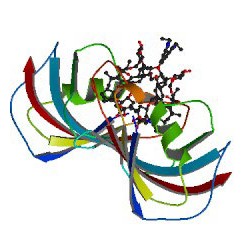
This article review was written by guest author, Amy Landreman, in the Cellular Analysis and Proteomics Group at Promega.
Charcot-Marie Tooth (CMT) disease is one of the most common inherited neurological disorders affecting approximately 2.8 million people worldwide. The most common form of CMT, CMT Type 1A, is caused by a 1.5Mb genomic duplication on Chr17 that results in trisomy of the critical myelin gene Peripheral Myelin Protein 22 (Pmp22). The extra copy of Pmp22 results in excessive PMP22 protein causing the neurophathy associated with CMT type 1A. Although there is no way to remove the extra copy of the gene, even subtle decreases in Pmp22 expression have shown promise against this inherited neuropathy in laboratory models.
In a recent paper, Inglese et al. 2014, describe an interesting new approach used to identify compounds that effectively decrease Pmp22 expression using a novel gene editing strategy and reporter-based screen. Their challenge was to create an assay that accurately represented endogenous Pmp22 expression including both transcriptional and post-transcriptional regulatory mechanisms, while maintaining the sensitivity required to detect subtle changes in expression in a loss of signal assay in a format compatible with microtiter 1536-well quantitative high-throughput screening (qHTS). Continue reading “Genome Editing and Reporter Technologies Enable Endogenous Pathway High-Throughput Assays”
